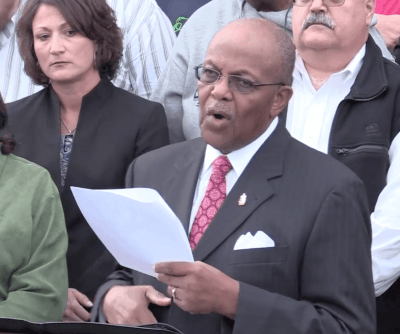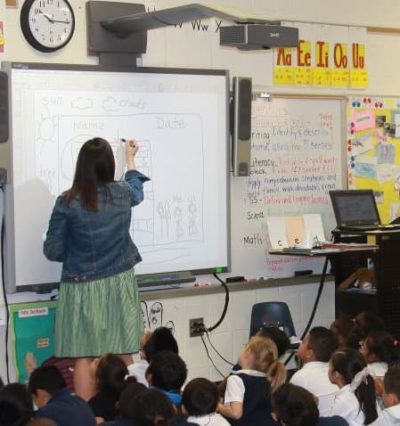

Much has been made about the teacher pipeline issue in North Carolina and how to fix it. The New York Times highlighted North Carolina’s teacher shortages, the state legislature promoted special loans to potential STEM teachers to cover education costs, and Senate leader Phil Berger recently stated that the state’s schools of education programs as inadequate in preparing students for the classroom. What one doesn’t hear are the voices of these students in the education programs, their passions and hope for the future. Here’s what 13 student teachers at Western Carolina University said about their step into the education field.
What does your dream classroom look like?
Student teachers ranging from music, high school, elementary, and exceptional children all noted that their dream classroom has plenty of technology, especially for each student, to teach 21st century skills. These skills are necessary not only for children to become cunning business men and women of an ever increasing and changing global market, but to simply stay afloat in the information age.
Elementary teachers in particular noted that classroom assistants were incredibly helpful, and are needed in every classroom. While decreasing class size to 15 would be nice, it would also need an increase in potential teachers, which the state is not seeing. Teacher assistants can provide a 1:11 or 1:15 at the max student-to-teacher ratio and provide more individualized instruction time for struggling students.
Teachers want more instructional time and less paperwork. Yes, grading test, quizzes, notebooks, homework, and late homework are all part of the job. But the increasing amount of meetings and documents each teacher fills out really can be the difference between a great lesson plan and an unforgettable one.
What incentives would keep you teaching in North Carolina?
A-F grades should look at growth rather than score. With so many challenges factoring into a child’s education, a simple 80 percent exam scores and 20 percent growth formula is not the best measurement of student, teacher, or school success. This also includes less testing, a stance President Obama has also recently chimed in on, to provide more instructional time rather than using classroom time to teach test-taking skills.
The teachers also wanted funds for classroom resources — to not force them to pull out money from their own wallets for simple supplies like markers and paper. As with other professions, teachers deserve regular pay increases and fiscal security. While giving a starting raise to beginning teachers is a good start to attracting high school students to the field, this group of student teachers knew that down the line they would like to see all levels of experience get a raise. Many students’ parents are or were teachers and have taught them the difficulty of raising a family on a teacher salary.
“Beginning teacher’s mindsets aren’t about pay,” noted Ryan Gaither, an elementary student teacher, “but we have expectations to be treated as professionals and should be compensated as such.” Gaither, a Murphy native, also commented on how he can drive 30 minutes into neighboring states and be paid 30 percent more. Along the same lines, tenure and master’s pay should be reinstated, students noted that it makes little sense that the state would revoke a motive for continuing professional development.
Support for the arts programs to create well-rounded children is also desired. Kelsie Yohe, a music teacher, said, “Just because our subject isn’t tested doesn’t mean it’s not important. It’s almost like giving plants water but no sunlight.”
Support for teaching fellows, which the General Assembly cut in 2011, is disheartening. Student teachers in the final fellows cohort said the prevailing lack of support for the program conveys a lack of esteem.
And finally, student teachers want you to visit and talk to them! This group was confident in their abilities, despite some legislators who view college education departments as failing. Teachers want the public to know how hard they work for the future of North Carolina to fulfill every student’s potential.




